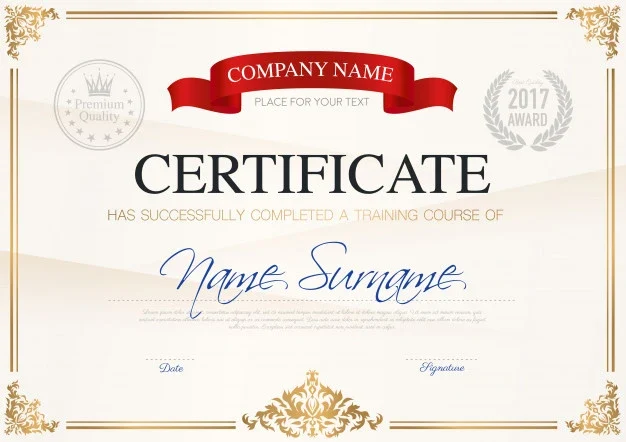
0
+
Google Reviews

0
+
MERN stack refers to a collection of JavaScript based technologies which are used in the development of websites. MERN is the acronym for Mongo DB, Express JS, React JS, and Node JS. All of these play an integral part in transferring database from client to server.
Mongo DB is a NoSQL database system. Mongo DB is used to save data in the format of binary JSON, making the transfer of information between server and client easier.
Express, being a lightweight framework is used in the building of web application in Node. Inspired from Ruby framework, Express is equipped to multiple robust features.
Robust is a library of JS which can be used instead of Angular for front end development. It is supported by Facebook.


Duration of Training : 40 hrs
Batch type : weekdays /weekends/ Customized Batches
Mode of Training: Offline / Online / Corporate Training
Projects Given : 2 Projects minimum
Trainer Profile : Experienced Faculty from IT Industry
Projects | Assignment | Scenarios and Used Case Studies






Downloading
Package Content
First Run
Command Line Options
Verify Server
Getting Help in the Shell
Introduction
Overview
Storage
BSON
Saving Documents
Collections
Document Id
ObjectId
Insert
Insert with Id
Complex Document
Save Danger
Update Command
Update Demo
Set Operator
Unset Operator
Rename Operator
Push Operator
Pull Operator
Pop Operator
Array Type
Multi Update
Find And Modify
Query With Sort
Introduction
Overview
find()
Equality
Projection
Comparison
$not
$in
Arrays
$all
$nin
Dot Notation
Sub-Document
null and $exists
And
Cursor
sort()
limit()
skip()
findOne()
Deleting Document
remove
deleteOne
deleteMany
Indexing
Introduction
Overview
Scan Is Bad
Index Theory
Sort Uses Index
Index Types
Create Index
system.indexes collection
explain()
dropIndex()
Index Name
Introduction to Javascript
Introduction to ES6
New in ES6
Classes
let and const
Arrow functions
Enhanced Object Literals
Destructuring
Spread Operator
Rest operator
Working with Web servers
The package.json file
Intro to Express JS
Express routing and CORS
Express Post bodies and params
Performing operations using HTTP methods
POST
PUT
GET
DELETE
Extracting path parameters
Extracting request parameters
Sending and Receiving JSON data
Calling the services with React Applications
Getting Started
What is React?
Real-World SPAs & React Web Apps
Why Should we Choose React?
React environment setup
Understanding the Base Features & Syntax
Understanding the Folder Structure
Understanding Component Basics
Understanding JSX
Creating a Functional Component
Creating a Class Component
Working with Components & Re-Using Them
Understanding & Using State
Props & State
Using the useState() Hook for State Manipulation
Stateless vs Stateful Components
Diving Deeper into Components & React Internals
Splitting an App Into Components
React Hooks
.Using useEffect() in Functional Components
Controlling the useEffect() Behavior
Cleaning up with Lifecycle Hooks & useEffect()
How React Updates the DOM
Higher Order Components (HOC) –Introduction
Another Form of HOCs
Using Refs
Understanding Prop Chain Problems
Using the Context API
contextType & useContext()
Adding Routing to our Burger Project
Setting Up Routing & Routes
Passing Ingredients via Query Params
Implementing Navigation Links
Forms and Form Validation
Custom hooks for error validation
Redux state manage
Introduction
Node.js Background
Getting Node.js
Demo: Installing Node on Linux/Windows with NVM
Node’s Event Loop
Node Conventions for Writing Asychronous Code
Modules, require() and NPM
Introduction, Accessing Built-in Modules
Finding 3rd Party Modules via NPM
Express
Introduction
Setting up Express
Running Express
Debugging Options
Static Files – Public Directory
Introduction, Making Web Requests in Node
Building a Web Server in Node
Demo: Building a Web Server in Node
Routing
Introduction
Navigation
Routing
Rendering
Separate Files
Router Functions
Authentication
Introduction to Authentication
Auth Routes
Passport
Local Strategy
Events and Streams
Introduction
Events and the EventEmitter class
Readable and Writable Streams, the Pipe function
Demo: Readable and Writable Streams
Demo: Piping Between Streams
Accessing the Local System
The Process Object
Demo: The Process object
Interacting with the File System
Demo: Interacting with the File System
What is a Buffer?
The OS Module
Socket.IO
Realtime Interaction with Socket.IO
Demo: Socket.IO
Testing and Debugging
Introduction, The Assert Module
Demo: The Assert Module
Testing with Mocha and Should.js
Demo: Mocha and Should.js
Scaling Your Node Application
Introduction, The Child Process Module
Demo: The “exec” function
Demo: The “spawn” function
Demo: The “fork” function
Scaling with Node’s Cluster Module
Demo: Building a Clustered Web Server
+91 8882400500




I had undergone oracle DBA course under Chetan sir's Guidance an it was a very good learning experience overall since they not only provide us with theoretical knowledge but also conduct lot of practical sessions which are really fruitful and also the way of teaching is very fine clear and crisp which is easier to understand, overall I had a great time for around 2 months, they really train you well.also make it a point to clear all your doubts and provide you with clear and in-depth concepts hence hope to join sometime again
I have completed Oracle DBA 11g from Radical technology pune. Excellent trainer (chetna gupta). The trainer kept the energy level up and kept us interested throughout. Very practical, hands on experience. Gave us real-time examples, excellent tips and hints. It was a great experience with Radical technologies.
Linux learning with Anand sir is truly different experience... I don't have any idea about Linux and system but Anand sir taught with scratch...He has a great knowledge and the best trainer...he can solve all your queries related to Linux in very simple way and giving nice examples... 100 to Anand Sir.
I had a wonderful experience in Radical technologies where i did training in Hadoop development under the guidance of Shanit Sir. He started from the very basic and covered and shared everything he knew in this field. He was brilliant and had a lot of experience in this field. We did hands on for every topic we covered, and that's the most important thing because honestly theoretical knowledge cannot land you a job.
I have recently completed Linux course under Anand Sir and can assuredly say that it is definitely the best Linux course in Pune. Since most of the Linux courses from other sources are strictly focused on clearing the certification, they will not provide an insight into real-world server administration, but that is not the case with Anand Sir's course. Anand Sir being an experienced IT infrastructure professional has an excellent understanding of how a data center works and all these information is seamlessly integrated into his classes.
1. Basic user account management (creating, modifying, and deleting users).
2. Password resets and account unlocks.
3. Basic file system navigation and management (creating, deleting, and modifying files and directories).
4. Basic troubleshooting of network connectivity issues.
5. Basic software installation and package management (installing and updating software packages).
6. Viewing system logs and checking for errors or warnings.
7. Running basic system health checks (CPU, memory, disk space).
8. Restarting services or daemons.
9. Monitoring system performance using basic tools (top, df, free).
10. Running basic commands to gather system information (uname, hostname, ifconfig).
1. Intermediate user account management (setting permissions, managing groups).
2. Configuring network interfaces and troubleshooting network connectivity issues.
3. Managing file system permissions and access control lists (ACLs).
4. Performing backups and restores of files and directories.
5. Installing and configuring system monitoring tools (Nagios, Zabbix).
6. Analyzing system logs for troubleshooting purposes.
7. Configuring and managing software repositories.
8. Configuring and managing system services (systemd, init.d).
9. Performing system updates and patch management.
10. Monitoring and managing system resources (CPU, memory, disk I/O).
1. Advanced user account management (LDAP integration, single sign-on).
2. Configuring and managing network services (DNS, DHCP, LDAP).
3. Configuring and managing storage solutions (RAID, LVM, NFS).
4. Implementing and managing security policies (firewall rules, SELinux).
5. Implementing and managing system backups and disaster recovery plans.
6. Configuring and managing virtualization platforms (KVM, VMware).
7. Performance tuning and optimization of system resources.
8. Implementing and managing high availability solutions (clustering, load balancing).
9. Automating system administration tasks using scripting (Bash, Python).
10. Managing system configurations using configuration management tools (Ansible, Puppet).
1. Learning basic shell scripting for automation tasks. 2. Understanding file system permissions and ownership. 3. Learning basic networking concepts (IP addressing, routing). 4. Learning how to use package management tools effectively. 5. Familiarizing with common Linux commands and utilities. 6. Understanding basic system architecture and components. 7. Learning basic troubleshooting techniques and methodologies. 8. Familiarizing with basic security principles and best practices. 9. Learning how to interpret system logs and diagnostic output. 10. Understanding the role and importance of system backups and restores.
1. Advanced scripting and automation techniques (error handling, loops).
2. Understanding advanced networking concepts (VLANs, subnetting).
3. Familiarizing with advanced storage technologies (SAN, NAS).
4. Learning advanced security concepts and techniques (encryption, PKI).
5. Understanding advanced system performance tuning techniques.
6. Learning advanced troubleshooting methodologies (root cause analysis).
7. Implementing and managing virtualization and cloud technologies.
8. Configuring and managing advanced network services (VPN, IDS/IPS).
9. Implementing and managing containerization technologies (Docker, Kubernetes).
10. Understanding enterprise-level IT governance and compliance requirements.
1. Designing and implementing complex IT infrastructure solutions. 2. Architecting and implementing highly available and scalable systems. 3. Developing and implementing disaster recovery and business continuity plans. 4. Conducting security audits and vulnerability assessments. 5. Implementing and managing advanced monitoring and alerting systems. 6. Developing custom automation solutions tailored to specific business needs. 7. Providing leadership and mentorship to junior team members. 8. Collaborating with other IT teams on cross-functional projects. 9. Evaluating new technologies and making recommendations for adoption. 10. Participating in industry conferences, workshops, and training programs.
Abu Dhabi
Abu Dhabi
Abu Dhabi
Abu Dhabi
Abu Dhabi
Abu Dhabi
Abu Dhabi
Abu Dhabi
Abu Dhabi
Abu Dhabi
Abu Dhabi
Abu Dhabi
Abu Dhabi
Abu Dhabi
Abu Dhabi
Abu Dhabi
Abu Dhabi
Abu Dhabi
Abu Dhabi
Abu Dhabi
Abu Dhabi
Abu Dhabi
Abu Dhabi
Abu Dhabi
Abu Dhabi
Abu Dhabi
Abu Dhabi
Abu Dhabi
Abu Dhabi
Abu Dhabi
Abu Dhabi
Abu Dhabi
Abu Dhabi
Abu Dhabi
Abu Dhabi
Abu Dhabi
Abu Dhabi
Abu Dhabi
Abu Dhabi
Abu Dhabi







(Our Team will call you to discuss the Fees)


(Our Team will call you to discuss the Fees)